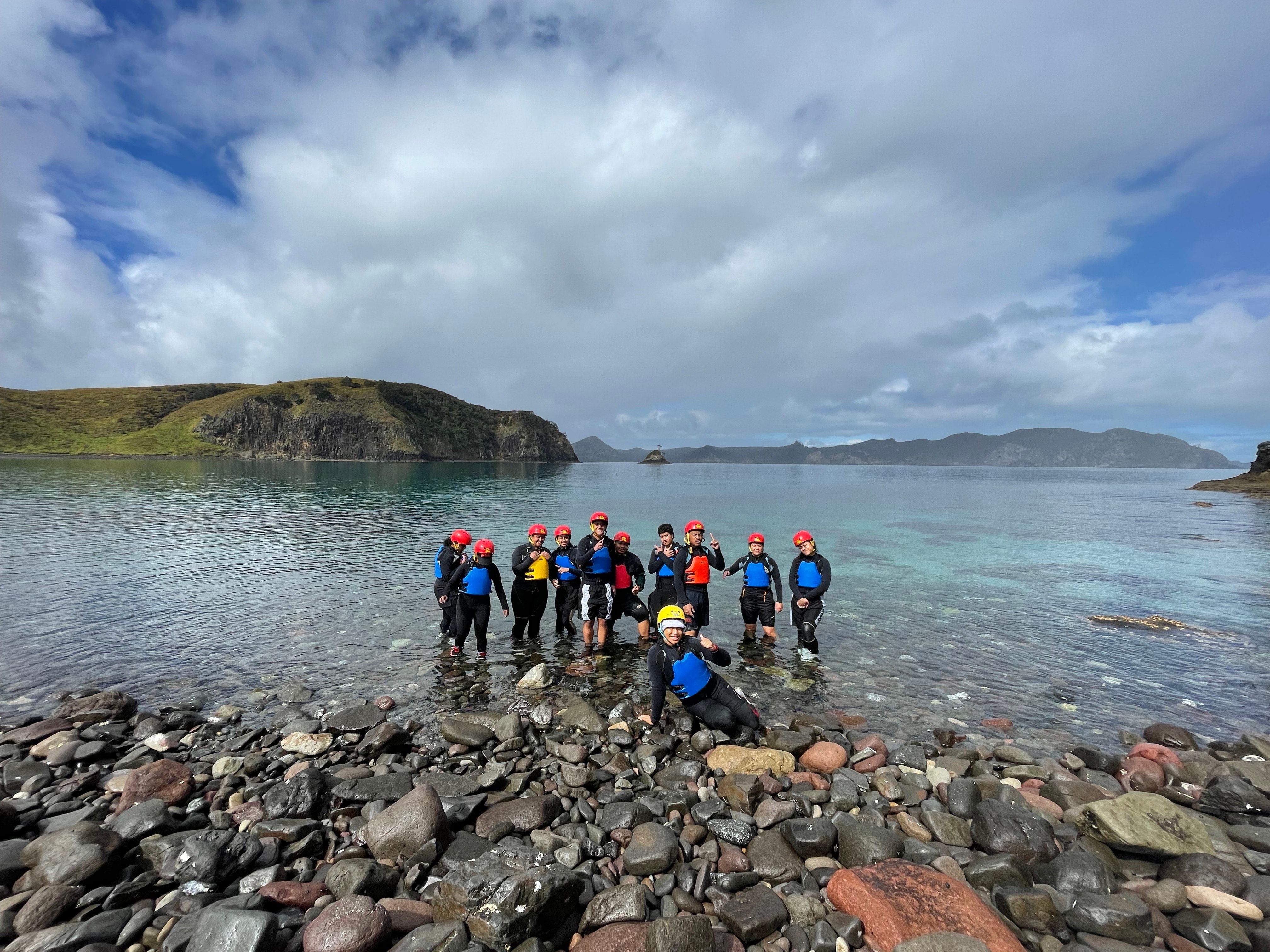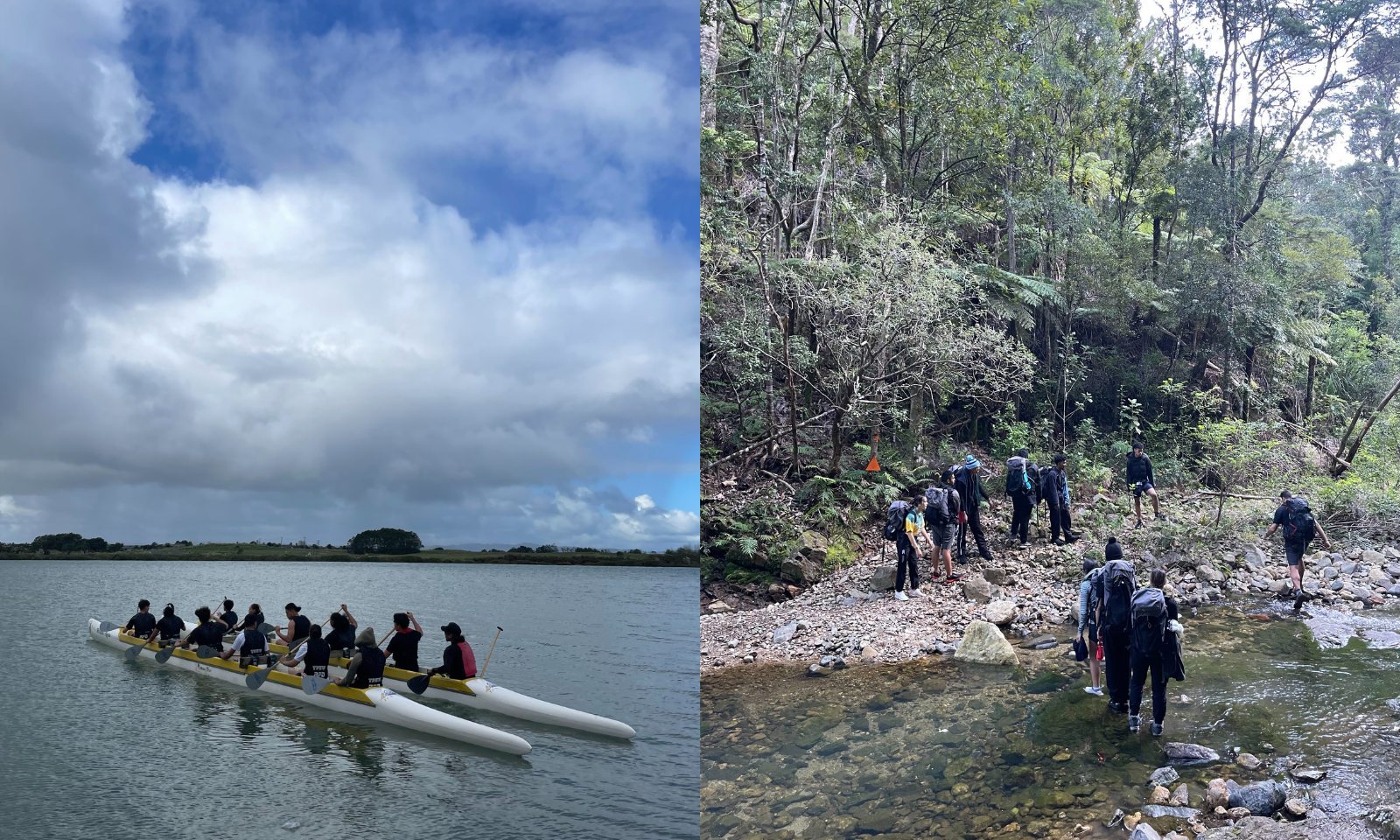

Outdoor Education advocates Freya Bullock and Michael Bureta say the subject should continue in the current curriculum.
Photo/Supplied/LinkedIn
Concerns raised about education changes for Pacific, Māori students
Teachers say the shift to vocational pathways will strip rangatahi of a subject that connects them to their ancestors, identity, and leadership potential.



Immigration reassesses toddler's declined visa request as Children's Commissioner steps in




Fiji’s former Prime Minister and police chief charged with inciting mutiny

Immigration reassesses toddler's declined visa request as Children's Commissioner steps in


There are growing fears that students will lose a crucial educational pathway as Outdoor Education faces proposed downgrades.
Teachers and advocates say changes to the National Certificate of Achievement (NCEA) will deprive Pacific and Māori students of a vital subject that strengthens and connects them to their cultural identity, confidence, and leadership potential.
The government plans to remove Outdoor Education as a general subject and restrict it to vocational training. Critics say the move will affect funding access and the academic credibility of the subject.
Freya Bullock, Outdoor Education advocate and former teacher, says the subject has been transformative for Pacific students, who often excel outside of traditional classroom settings.
“Traditionally, our ancestors were very connected with the environment; it was our whole way of life”, she says. “The environment was our classroom.
“Back in the day, we were masters of the STEM (science, technology, engineering, maths) subjects. We had masterful designs of our waka, we knew how to navigate the Pacific Ocean.”

Advocates say Outdoor Education should remain part of NCEA's main subjects. Photo/Supplied
Speaking with William Terite on Pacific Mornings, Bullock says Outdoor Education is a way of decolonising mainstream schooling by integrating Māori and Pacific traditions and worldviews into the learning process.
“These were huge challenges that our people came up against, and because they were able to learn in the environment and learn through this holistic lens, they understood the way that everything worked together.”
The proposed changes mean that Outdoor Education will no longer have a curriculum, assessments, or resources developed by the Ministry of Education.
Michael Bureta, Head of Physical Education at Aorere College, describes the proposed changes as disappointing, warning that the government’s “back to basics” approach may cut off alternative pathways for Pacific learners.
He says the impact would be particularly severe for Māori and Pasifika students, who make up the majority of his school roll.
“Back with our ancestors, our kids, they learned through these sorts of experiences outside the classroom, through stories, just being outdoors, and it's a way for our Māori and Pasifika kids to just reconnect with their learning.
“In our umbrella subject of PE, we’ve got our heath subjects, a police pathway, a fitness pathway, and an outdoor education pathway … You're just taking opportunity away from kids that need different pathways.”
A different learning style
Bullock recalls the story of a Pacific student who had been labelled as a “learning support” case but flourished after attending an Outdoor Education camp.
“He just totally turned into a different person,” she says. “Previously, he had struggled with attendance, he had struggled with achievement … but he actually became the first person to pass NCEA Level 2 because he worked so hard when he got back.

Outdoor education allows students to learn beyond the four walls of a classroom. Photo/Supplied
“It was almost like it gave him the opportunity to see that he was capable and he could have confidence in himself.”
Bureta says stories like this are common, with many Pasifika students finding their voice and self-belief through Outdoor Education.
“They became more confident in themselves. They're going to be in situations where they need to take risks and they need to be sure of themselves and understand what their own strengths are and how they can bring that to different situations.”
Education Outdoors NZ is urging parents, schools, and communities to sign its petition to keep the subject (Outdoor Education) in the curriculum. In the petition, they argue that schools will lose the flexibility to design courses that reflect their local environment and may stop offering the subject altogether.
“Losing recognition at this level strips Outdoor Education of its academic value, limits what schools can offer, and removes a subject that not only supports careers in tourism, recreation, and conservation but also grows the confidence and well-being of our young people.”